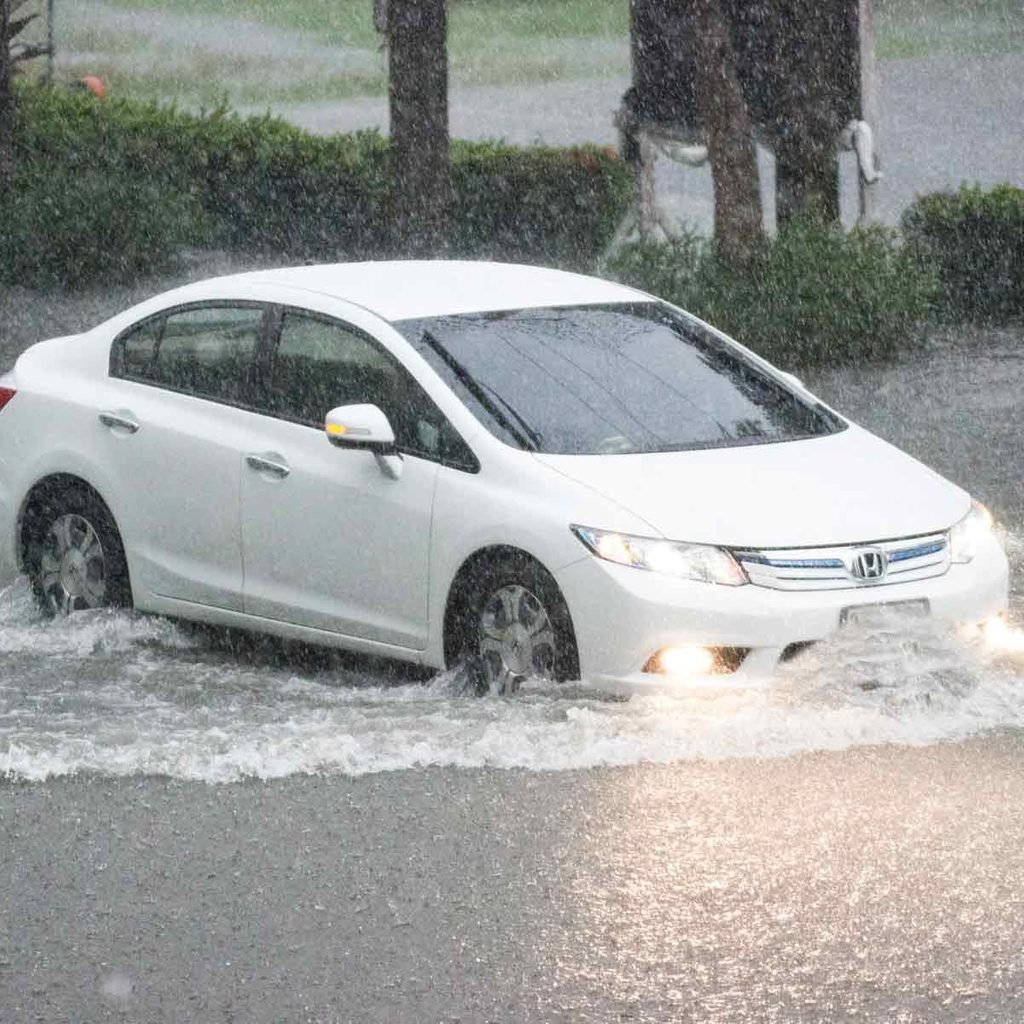What Happens To Your Car When You Drive Through High Water
Updated: Mar. 30, 2023

Driving through high water can have a disastrous effect on your car’s engine. This is what happens when you drive your car through high water.
Depending on where you live, flash flooding might be an issue you see from time to time and some day you could face a situation where driving through high water is unavoidable. Even six inches of water can reach the bottom of passenger vehicles and if that happens it can set off a chain reaction of devastating damage to your engine. Water close to one foot deep can float cars and two feet of water can sweep away most vehicles, not to mention road visibility disappears when there’s flooding, which can lead vehicles off the road.
Will My Car be OK After Driving Through Water?
That depends on how much water you drove through and where your air intake is located. If you car’s air intake sits low in the vehicle, you’re likely in trouble because it could have sucked in some water, which means it could enter your engine. But if your air intake sits high, you might be alright.
What Happens if Water Enters the Engine?
If water enters the engine it can lead to bad things. If there’s water in your engine, it leads to compression issues because there’s no place for the water to go. Piston rods will begin to bend and eventually break. When a piston rod breaks, it’ll likely take a chunk out of our engine on the way out, most likely out of the bottom of the engine, though it could come out the top of the engine, too.
If water enters your engine it can end up rusting parts out like your differential and then you’re not going anywhere.
These are the worst car tips mechanics have ever heard.
What to Check After Driving Through Water
Check your brakes — wet brakes typically lose their grip. Before turning the car off, tap the bakes a few times to help dry them out.
Listen to your engine — You’ll definitely hear some noise if water has affected your engine, If you notice bizarre behavior from your engine or unusual noises it’s sign of bigger problems and it’s time to have it towed to the shop or try to repair it yourself if you’re a capable mechanic.
Check Your Electronics — Inspect your fuses and fuse box because water damage will fry your entire electrical system. Water isn’t as likely to affect your electrical system since connections are more water resistant and the fuse box is well protected.
These are 105 super-simple car repairs that don’t require a trip to the repair shop.